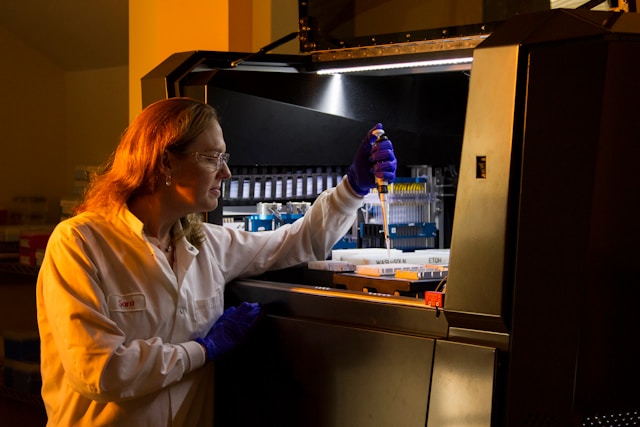The underlying cause of Alzheimer’s disease is unknown, but scientists have lots of reason to believe that people’s genetics affect how susceptible they are: Some genes multiply risk, while others appear to be protective. And until recently, scientists didn’t have the tools to add, subtract, or edit genes involved in diseases like Alzheimer’s.
That’s changing: Gene therapies are under development, and even being tested in clinical trials.
Gene therapy is already in use to treat diseases from melanoma to spinal muscular atrophy. Some of the treatments replace faulty genes, silence the effects of harmful genes, or introduce new protective genes designed to fight off disease.
Cornell scientist Ronald Crystal, who developed some of the first forms of gene therapy turned his attention to Alzheimer’s in 2004.
“Gene therapy is essentially a drug delivery system,” Crystal told Being Patient. “We’re all made up of about 25,000 genes, and we’re using those genes, essentially, as drugs. So, gene therapy is a strategy to try to prevent or treat disease by using genes as the drug.”
A few gene therapies for Alzheimer’s disease are in the early stages of clinical trials, and more may be on the way soon.
Biogen’s BIIB080
Biogen’s BIIB080 is an experimental gene-silencing therapy injected into the cerebrospinal fluid. It works by stopping genes from making tau proteins, which tangle up in the brains of people with Alzheimer’s and related forms of dementia, causing brain cell death.
In the Phase 1b clinical trial, the company reported BIIB080 successfully reduced the levels of tau in the cerebrospinal fluid, without substantial side effects. The company is running a larger Phase 2 trial, with results expected in 2027.
Lexeo Therapeutics LX1001
LX1001 is an experimental therapy that involves inserting a gene called ApoE2 into the brain to counteract the effects of Alzheimer’s risk gene ApoE4. The gene is packaged into a harmless virus and infused into the cerebrospinal fluid, which makes its way into brain cells.
At a conference this year, the company presented data from the ongoing Phase 1/2 study, which treated 15 participants with four different dose regimes of the therapy. All of these participants had diagnoses of either MCI or mild to moderate Alzheimer’s and had two copies of the ApoE4 gene.
And it appeared to work: Brain cells treated with the gene therapy did indeed start producing ApoE2 protein. In line with the idea that this gene could be protective, data also showed a stabilization in levels of another Alzheimer’s biomarker, beta-amyloid, and a reduction in tau. The trial is still ongoing, and then larger Phase 2 and Phase 3 trials will be needed to understand whether all these results have an impact on cognitive decline.
BDNF Gene Therapy
Researchers at UC San Diego are conducting a Phase 1 clinical trial to determine whether adding another gene, called a brain-derived neurotrophic factor, will slow or prevent brain cell death in people with Alzheimer’s or MCI. BDNF is a multi-purpose gene linked to healthy brain cell function, neuroprotection, cellular communication, learning, and memory. Study results are expected by 2027.
What’s next for gene therapy?
The above treatments are already being tested in humans, and on their heels are a number of studies being conducted in animal models of Alzheimer’s. For instance: In a mouse study in 2020, scientists in Tokyo used “genetic scissors” to cut out genes in an effort to reduce beta-amyloid production in the brain. A few months later, in a petri dish study, researchers in Canada used CRISPR/Cas9 to alter a certain gene in nerve cells and, in turn, control (and slow) the production of beta-amyloid protein.
In the future, scientists hope next-generation medicine like this could knock out early-onset Alzheimer’s disease by counteracting PSEN1 and other genes known to kickstart the disease process.













